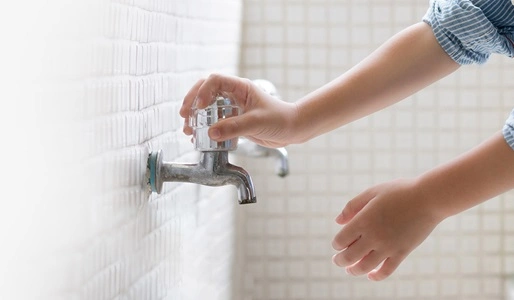Yes, in many jurisdictions across the United States, it is illegal to live in a residence without running water, especially if it is deemed a primary residence or rental property. Housing codes and public health regulations often require access to clean, running water as a basic necessity for habitability. Failure to comply with these requirements can result in legal consequences, eviction, or penalties for property owners.
Legal Requirements for Running Water in the U.S.
1. Habitability Standards
- Most states and municipalities have minimum habitability standards for residential properties, often outlined in building or housing codes.
- These standards typically include access to safe, potable water for drinking, cooking, sanitation, and hygiene.
- Landlords must ensure running water is provided to tenants. Lack of water can make a property uninhabitable, leading to legal actions against the property owner.
2. Public Health Laws
- Local health departments enforce regulations to ensure basic utilities, including water, are available in homes to prevent health hazards.
- Lack of running water can contribute to unsanitary living conditions, increasing the risk of disease and public health issues.
3. Building Codes and Utilities
- Municipal building codes often require residential structures to have functioning plumbing systems connected to a municipal water supply or an approved private source, such as a well.
- Violations of these codes can lead to fines or property condemnation.
Exceptions to the Rule
1. Off-Grid Living
- In rural or remote areas, where access to municipal water is unavailable, residents may rely on private wells, rainwater collection systems, or other approved methods for water supply.
- However, these systems must meet local health and safety standards to be considered legal.
2. Temporary Situations
- Short-term disruptions in water service, such as during maintenance or emergencies, are typically not illegal.
- Extended periods without water may require reporting to local authorities, especially if the issue affects rental properties.
Consequences of Not Having Running Water
1. For Homeowners
- Municipal authorities may issue warnings, fines, or even declare the property uninhabitable if water service is absent for an extended period.
- In extreme cases, authorities can order occupants to vacate the property.
2. For Landlords
- Failing to provide tenants with running water violates landlord-tenant laws in most states. Tenants can withhold rent, terminate leases, or take legal action.
- Landlords may also face fines, lawsuits, or government-imposed repairs.
3. For Tenants
- Tenants living without running water due to landlord negligence can file complaints with local housing authorities or seek legal remedies.
- However, if a tenant deliberately disconnects or damages water service, they may face eviction or legal action.
Why Running Water Is Essential
1. Hygiene and Sanitation
Running water is necessary for bathing, cleaning, flushing toilets, and preventing the spread of germs.
2. Public Health
Lack of water can lead to poor sanitation and outbreaks of diseases such as cholera or hepatitis.
3. Legal Habitability
Courts generally consider access to water a non-negotiable aspect of a livable home.
State-Specific Regulations
1. California
Under the California Civil Code Section 1941, landlords must provide tenants with functioning plumbing systems and running water.
2. New York
New York City’s Housing Maintenance Code mandates access to both hot and cold running water in all rental units.
3. Texas
Texas requires landlords to ensure continuous water supply unless tenants fail to pay utility bills directly under their responsibility.
Common FAQs
Q1. Is it legal to live without running water in rural areas?
Ans: Yes, in rural areas, off-grid living is legal, but alternative water sources like wells or rainwater systems must meet local health and safety standards.
Q2. Can a landlord shut off water to force a tenant to move out?
Ans: No, this is illegal in all states. Landlords cannot use utility shut-offs as a means of eviction. Tenants can report such actions to housing authorities or take legal action.
Q3. What should tenants do if their water is shut off?
Ans: Tenants should immediately notify their landlord and, if unresolved, file a complaint with local housing or health authorities.
Q4. Are there penalties for not having running water?
Ans: Yes, homeowners can face fines, and landlords can be held legally liable. Tenants may also be forced to vacate uninhabitable properties.
Q5. Is bottled water a legal substitute for running water?
Ans: No, bottled water does not replace the need for running water required for sanitation and other household uses.
Conclusion
Access to running water is a fundamental requirement for habitable living conditions in the United States. Whether you are a homeowner, tenant, or landlord, maintaining a functional water supply is critical to complying with legal and public health standards. Exceptions exist in off-grid situations, but even these must adhere to local regulations to ensure safety and sanitation.

